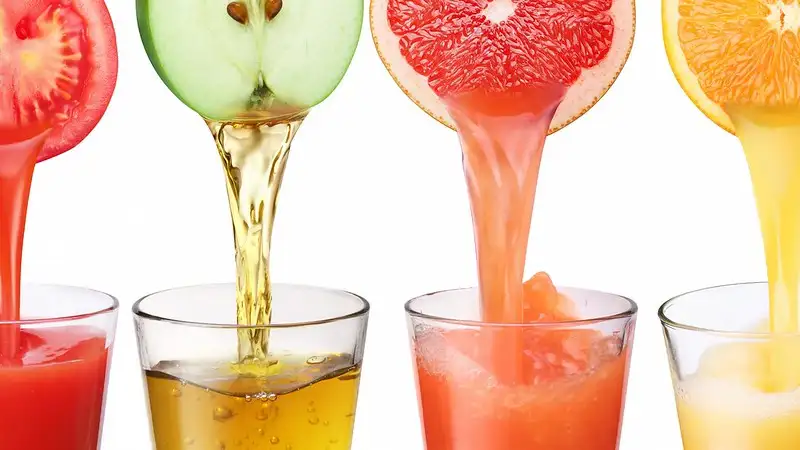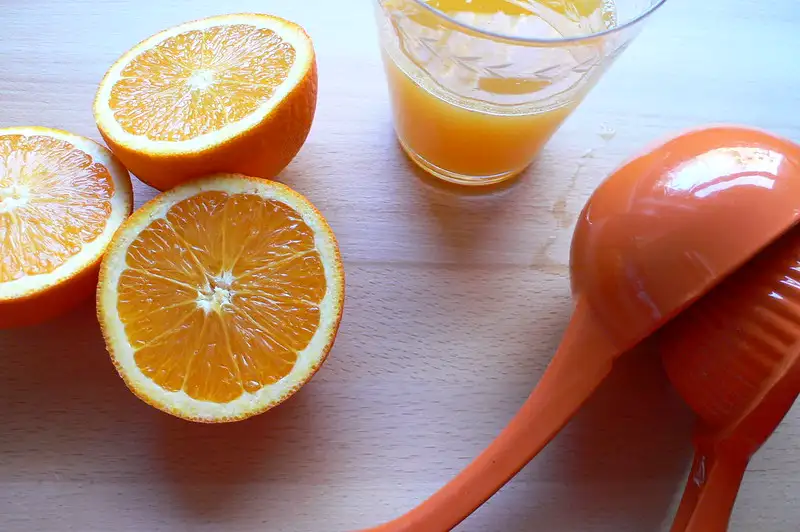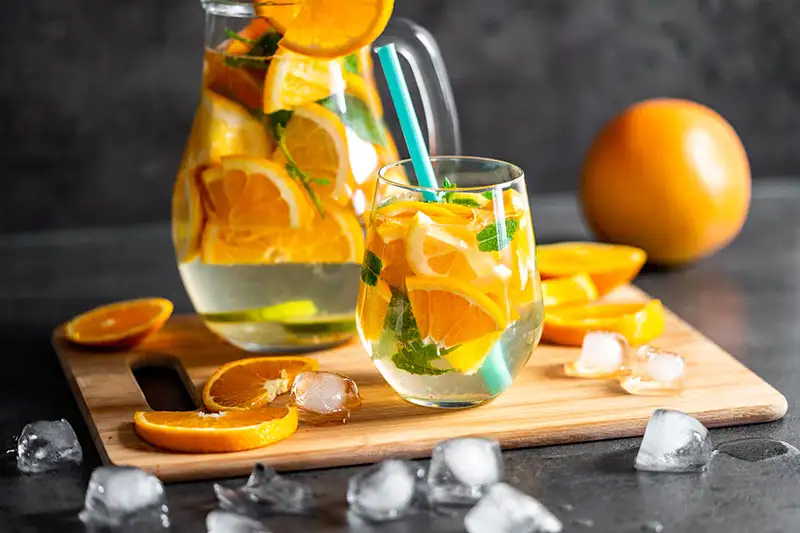Whole fruit or fruit juice? This question might be unanswered in your mind. Some people think the juice of fruits is natural and has the same benefit as fruit. What do you think? Let’s have a close examination on juice VS fruit juice.
How many fruits my body needs every day?

Nutritionists recommend that the consumption of 2 to 3 units of fruit is needed for everybody to stay healthy. Remember I use the word unit to measure, it does not mean 2 to 3 number of fruits. The unit of fruits is different from one another. For example, a Lebanese apple is approximately two units or a large orange is two units, but how many fruits does it take to make a glass of fruit juice? A glass of orange juice for example takes 4 medium-sized oranges.
On the other hand, nutritionists call two to three medium-sized fruits one portion. It is better to include a variety of fruits in one portion rather than only one type. A glass of fruit juice contains more fruits than there should be in a portion with no variety.
If we want to answer the brief question of whole fruit or fruit juice? The answer is if you are not interested in fruits, natural fruit juice is a good option, we can say eating fruit is better than drinking juice and drinking juice is better than nothing at all, if you chose fruit juice over whole fruit, always drink healthy homemade fruit juice.
The point is, since juice is easy to drink and people tend to over drink, Try not to overconsume fruit juice.
I would like to mention that we are talking about juice that is extracted from whole fruits without extra sugar or preservative. We are not talking about commercial fruits juice products.

Whole fruit or fruit juice?
The fiber, carbohydrates, minerals, and vitamins in fruits are in balance. However, when you juice the fruits, fiber is removed and replaced by sugar and carbohydrate. When people drink fruit juice, their blood sugar increases rapidly. High insulin levels double the sugar’s ability to turn into fat. That is why fruit juice contributes to weight gain.
As I mentioned before, fruit juice is high in sugar and has a pretty high GL (glycemic index); glycemic index is a number from 0 to 100 that is assigned to every fruit and food to measure how much time it takes to raise blood sugar. Fruit juice raises blood sugar faster than whole fruit. Diabetics should avoid drinking fruit juice.
Fruits have a lot of fiber; eating fruits is equal to high fiber intake. Fiber helps you feel full, but juice does the opposite. So despite taking lots of sugar, you will be hungry soon. Gain weight dieters or athletes who need energy constantly should include juice in their plan. Fiber also boosts the digestion process and prevents colon cancer.

Apple juice or whole apple
Oncologists have worked on apple peel and its benefits in fighting cancer cells. This research has ended up with an article “anti-proliferative effects of apple peel extract against cancer cells” published by the department of dermatology, Wisconsin university, Washington. Researchers indicated that the skin of apples has the potential to fight cancer cells.
Juicing deletes the skin of fruits, some people peel the apple which removes the skin, but what is the difference between a whole apple and apple juice? Vitamins and minerals both are in the skin and pulp; when you remove the skin, you are cutting the nutrients. Some fruits have fiber in their skin. This fiber helps to move the food through the digestive system. The skin of fruits is very beneficial. Nutritionists recommend eating the entire apple to get all of the benefits of an apple.
Now, you probably have the information to choose whole fruit or juice. But always remember, choose organic and non-pesticide fruits.
Read about Fruit splash photography.
